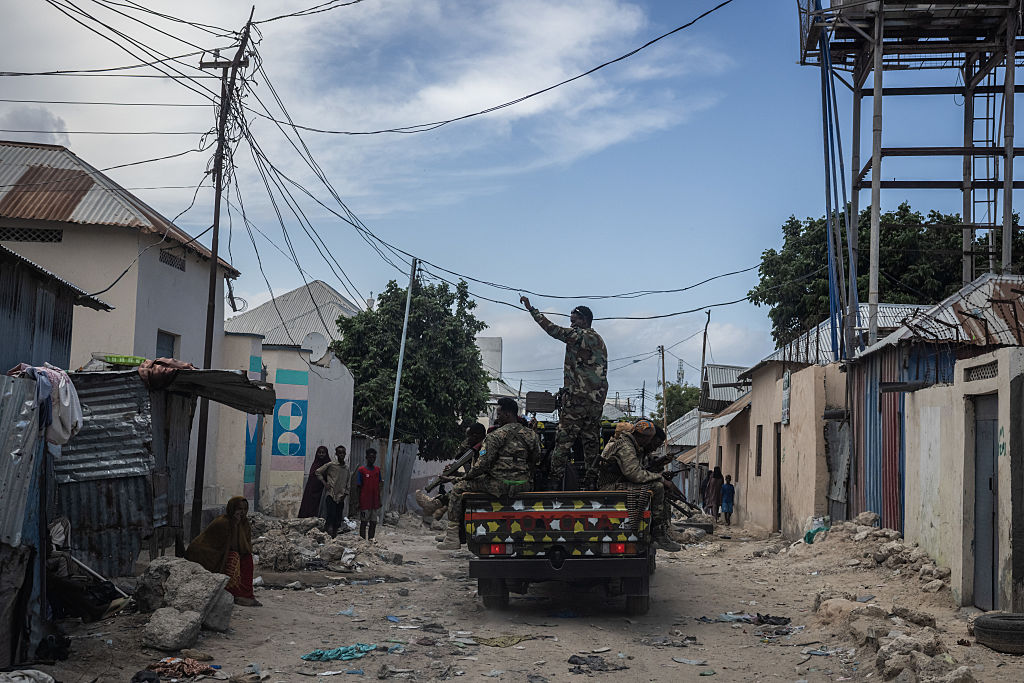Security analysts are warning that internal strife between Somalia’s federal government and regional states is undermining the country’s counterinsurgency strategy and opening opportunities for terrorist groups.
Al-Shabaab has launched a broad offensive in 2025, taking control of dozens of towns and villages in regions around Mogadishu, the increasingly isolated capital.
“The group’s advances have taken place against a backdrop of Somalia’s increasingly fragmented domestic political landscape,” the Soufan Center think tank wrote in a July 24 brief. “Ongoing power struggles between the federal government of Somalia and member states like Puntland and Jubaland have undermined coordination and counterterrorism efforts.”
The advance by al-Shabaab, which is al-Qaida’s deadliest and best-financed affiliate, has reversed nearly all of Somalia’s strategic and territorial gains since it launched a counteroffensive in 2022. Al-Shabaab fighters have stormed across the Hiiraan, Lower Shabelle and Middle Shabelle regions, bringing the fight close to Afgoye, about 30 kilometers from Mogadishu.
Tensions escalated in March 2024 over the constitutional review process that replaced Somalia’s decades-old clan-based power-sharing system with a one-person, one-vote model. Leaders in the semiautonomous Puntland and Jubaland states saw the change as an unacceptable concentration of presidential power ahead of national elections scheduled for 2026.
“Critics swiftly denounced it as an attempt to dismantle the fragile system of federalism that gives statelets like Puntland largely untrammeled control of their territories, including over taxation and security,” The Economist magazine wrote in a July 26 article.
“The dispute has poisoned relations between Somalia’s central government and the federal states, and sparked debate about the country’s future. For more than 15 months, formal ties between Puntland and Mogadishu have been severed.”
Relations with Jubaland in the south are even worse, as regional forces have clashed with federal troops for control of the state, with dozens killed since December 2024.
Somalia has struggled for years with political rivalries that undermine security efforts, according to Selam Tadesse Demissie, an Ethiopia-based Horn of Africa researcher with the Institute for Security Studies.
“Since 2012, successive Somali administrations have battled to sustain counter-insurgency operations — mainly due to the cyclical nature of Somalia’s politics,” he wrote in a July 28 article. “Each new administration begins with intensified anti-terror efforts, but these diminish as political tensions rise ahead of the next election, shifting attention and resources to other priorities.”
As al-Shabaab has exploited Somalia’s lack of harmony in every instance, experts such as Demissie and others have urged the federal government to resolve its regional tensions and extend dialogue with opposition parties and other member-state leaders to build consensus and foster unity.
“Political fragmentation hinders the fight against al-Shabaab,” Demissie wrote. “The fragmentation of the Somali government will likely worsen if political divisions continue and upcoming elections become exclusionary or disputed.
“The further weakening of state authority could accelerate al-Shabaab’s expansion from rural areas into cities. … This could allow the militants to infiltrate state institutions and integrate into official governance structures.”

